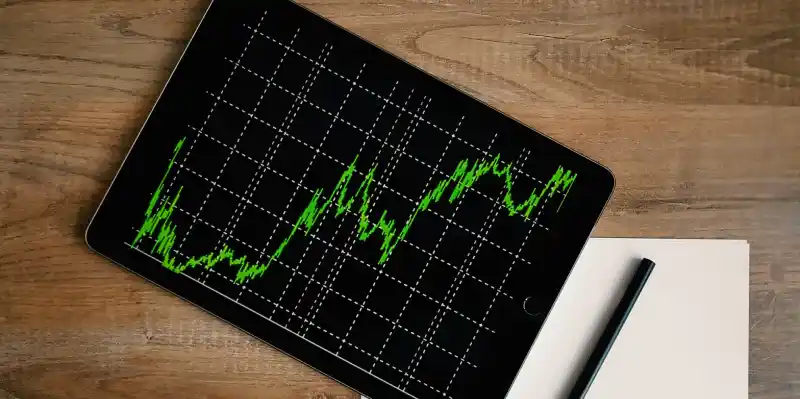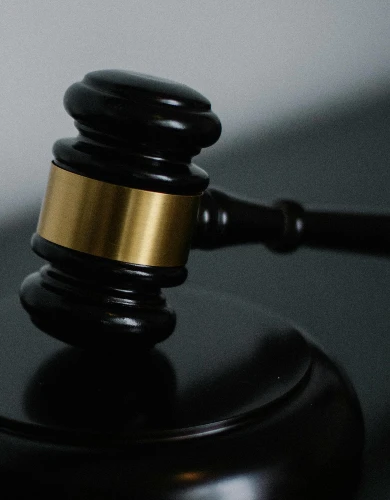How to Develop an Effective Energy Procurement Strategy for Your Business
For businesses nationwide, energy usage is likely one of a company’s biggest outgoings.
With the market volatility over the last few years, it is now even more critical to secure the best prices and terms for your business. However, this is not an easy task, and that’s where an energy procurement strategy becomes essential.
In the article, we explain the foundations of putting a plan in place to ensure your business navigates the energy markets with confidence. We cover:
- What is an energy procurement strategy?
- What are the objectives of an effective energy procurement strategy?
- Assessing your business’s energy needs
- Exploring energy procurement options for businesses
- Analysing energy market trends
- Mitigating risks in energy procurement
- How to negotiate business energy contracts
- Incorporating sustainability into your strategy
- Leveraging technology for energy procurement
- Implementing and monitoring your strategy
- Long-term success best practices
What is an energy procurement strategy?
Simply put, an energy procurement strategy involves analysing your business to determine your energy needs and finding the best supplier and deal to suit your business.
While a procurement strategy benefits businesses of all sizes, it is particularly advantageous for energy-intensive organisations that must mitigate risk and secure the best rates. It ensures that the chosen supplier and service not only meet their budget but also align with their company vision and goals.
Understanding the concept of an energy procurement strategy for businesses
In essence, an energy procurement strategy involves establishing a plan and process within your business for negotiating energy contracts.
The aim is to secure a deal with a supplier that aligns with your business needs. This task can be managed in-house by a designated employee, or you can outsource to a business energy broker.
The energy procurement strategy should include the following six elements:
1. Analyse your business energy usage
Review your energy consumption by examining the energy bills for the past five years. This historical data will provide insights into your energy patterns. Conducting an energy audit is also advisable, as it can highlight opportunities to reduce consumption and, consequently, business energy bills.
Check out our complete guide to business energy consumption.
2. Assess your business needs
Define your operational requirements and objectives. Are you aiming to reduce your carbon footprint with renewable business energy sources? Is installing commercial solar panels to cut energy consumption on your agenda? These needs should steer your procurement strategy, guiding you towards suitable energy suppliers and rates.
3. Assess your risk tolerance
Determine the level of risk your business is willing to accept. While some may prefer the predictability of a fixed-rate contract for budgetary consistency, others may opt for the potential savings of a variable-rate contract, especially if energy prices are expected to fall.
4. Analyse the market
Stay informed about the current energy market and trends. You can refer to our continuously updated wholesale energy prices to track market movements.
5. Evaluate your options
Carefully consider the options presented to you, whether through a business energy broker or your in-house research.
6. Negotiate the terms
If you are working with a broker, obtain quotes from multiple sources. Negotiate commissions and rates to secure the best possible deal for your business.
What are the objectives of an effective energy procurement strategy?
The objectives of an energy procurement strategy will vary depending on each business’s unique energy requirements.
Here are the key objectives to consider when crafting an effective procurement strategy:
Cost savings
The primary goal for most businesses is to reduce their energy costs.
Initially, a business energy audit will help you identify and eliminate wasteful energy usage, giving you instant savings.
Furthermore, a well-devised procurement strategy should establish procedures for negotiating with various energy suppliers to ensure you secure the most competitive business electricity prices and commercial gas rates.
Risk mitigation
Identify and assess the risks pertinent to your business. Is a variable tariff with the potential for price increases acceptable, or is the stability of a fixed-price contract necessary? The level of risk your business is prepared to accept will inform your procurement decisions.
Sustainability goals
Your strategy should also encompass your sustainability ambitions, which may include:
- Encouraging energy conservation practices in the office
- Promoting a paperless office
- Supporting environmentally responsible suppliers
- Reducing by reusing
- Introducing office plants to improve air quality
- Prioritising the well-being of staff
- Incentivising sustainable commuting
- Participating in community volunteer work
- Embedding eco-friendly values into your ethos
- Using sustainable materials in production
- Streamlining logistics to minimise carbon emissions
- Installing commercial solar panels
- Prioritising green energy suppliers who purchase REGOs
- Introducing a commercial recycling strategy.
Assessing your business’s energy needs
Understanding your business’s energy consumption is vital. An energy audit is recommended as a starting point to gauge how energy is used within your business and where improvements can be made.
Evaluating consumption patterns
Begin by examining both current and historical consumption patterns:
Review Current Usage: Gather and analyse data on your energy consumption, such as utility bills, meter readings, and any other relevant records of energy use within your business.
Review Historical Usage: Analyse historical data to discern trends, seasonal variations, and any anomalies in energy usage. This can yield insights into your business’s operational energy needs and highlight potential areas for improvement.
Identify Energy-Intensive Areas: Isolate parts of your business that are particularly energy-demanding. Common culprits often include lighting, computing equipment, and machinery.
Analysing peak demand
First, you need to identify peak demand periods. Review historical data to pinpoint peak demand times, which may coincide with certain times of the day, days of the week, or seasons.
Then, you need to understand what is causing them. Identifying which processes or pieces of equipment are the most energy-intensive during these times can inform strategies to manage and potentially reduce peak demand.
For more information, check out our guide to maximum demand meters.
Exploring energy procurement options for businesses
There are many different business energy contracts to choose from:
Fixed-Rate Contracts
In a fixed-rate contract, a business locks in an energy price for a set period, typically between one to three years. This offers price certainty and protection from market volatility but may limit the ability to benefit from price drops during the contract term.
Variable Rate Contracts
Variable rate contracts tie the energy cost to the wholesale market rates, which fluctuate due to numerous factors. It may offer savings when wholesale prices are low but leaves your business exposed to spikes in energy prices.
Renewable Energy Options
Green Tariffs: Suppliers offer green tariffs that enable businesses to support renewable energy. These tariffs vary, providing different levels of commitment to green energy (it’s a nuanced subject; see our in-depth article on REGOs for an explanation).
Pure Green Tariff: Ensures that all the energy supplied to the customer is 100% sourced from renewable sources.
Partial Green Tariff: Allows businesses to elect a portion of their energy use—such as 50%—from renewable sources.
Solar PV Self-Generation
An alternative to traditional energy procurement is generating your energy on-site, with options like commercial solar panels:
Solar Electricity: It’s a sustainable choice that contributes to the UK’s net-zero emissions goal. On-site solar power can be a direct substitute for grid electricity.
Smart Export Guarantee (SEG): With SEG, any surplus energy produced can be sold back to the local grid, potentially offering a financial return to offset the initial investment.
Long-Term Benefits: A commercial solar installation can deliver electricity for many years, shielding your business from electricity price increases and thus providing long-term price stability.
Extended Reading:
- A guide to the cost of commercial solar panels in the UK
- What are Solar PV Systems?
Analysing energy market trends

Analysing energy market trends is fundamental for businesses to make informed decisions regarding energy procurement, efficiency measures, and sustainable practices.
The importance of market monitoring
- Budget Planning and Forecasting: Understanding energy markets is critical for accurate forecasting, aiding in budget preparation and averting budget overruns due to unexpected energy price hikes.
- Cost Management: Regular monitoring of energy market trends can highlight opportunities to minimise energy expenses, such as securing energy at advantageous rates and investing in energy-efficient technologies.
- Risk Mitigation: The energy market is subject to volatility, influenced by geopolitical events, climatic conditions, and shifts in supply and demand. Keeping a close watch allows for the early identification of risks and the development of countermeasures.
- Renewable Energy Opportunities: Businesses aiming to integrate renewable energy into their operations need to track the market to pinpoint favourable moments for investment in renewable technology or acquiring renewable energy certificates (RECs).
Staying informed about market developments
There are many ways to remain up-to-date with market developments:
- Monitor industry news
- Follow regulatory updates and policies
- Join relevant industry associations, forums, and online communities
- Attend conferences and workshops
- Subscribe to market reports and analysis
- Engage with energy consultants and brokers
- Establish strong relationships with your energy suppliers and local utilities
- Monitor global energy trends
- Participate in webinars and webcasts
Mitigating risks in energy procurement
Mitigating risk in energy procurement is essential to ensure business stability and cost control. Here are ways you can mitigate risk:
Addressing price volatility
- Adopt Fixed Price Contracts: By locking in a fixed rate for the contract term, businesses can protect themselves against market fluctuations and budget with greater certainty. Remember, volatility is inherent in energy markets, especially due to its dependence on global affairs and climate.
- Conduct Energy Audits: Regular business energy audits can reveal opportunities to reduce energy consumption, potentially leading to significant savings and less exposure to market volatility.
Navigating regulatory changes
Staying compliant with regulatory changes is critical:
- Stay Informed: Keep up with regulatory changes by monitoring government announcements and energy market news
- Compliance Team: Designate or hire a team responsible for regulatory compliance, ensuring they report back on important updates.
- ESG Reporting: Regularly update your business’s Environmental, Social, and Governance (ESG) reporting to reflect new regulations or industry standards.
- Energy Efficiency Standards: Keep up-to-date with Minimum Energy Efficiency Standards (MEES) for commercial properties and plan for any necessary upgrades or changes.
- Net Zero Commitment: Align your energy procurement strategy with the UK’s Net Zero Commitment to ensure that your business is contributing positively towards national sustainability goals.
How to negotiate a business energy contract

Negotiating a business energy contract can be tricky as most business energy suppliers have fixed rates based on your annual consumption.
Business energy brokers add a commission to your energy bill, usually based on adding a percentage to your business energy rates per kWh; here’s where you can negotiate.
What are some tips for successful negotiations?
- Ensure your business has a good credit history, score, and allowance; unfortunately, your negotiating power is limited if your credit is not up to standard. Not all suppliers will be willing to take on your business.
- Understand your energy usage and consumption history. An accurate consumption assessment will ensure your rates and payments reflect your usage. If you have a half-hourly meter, ensure you obtain the half-hourly consumption data for your supplier or broker.
- Engage multiple brokers and suppliers to bid for your business, aiming to secure the best rates and terms. Use the competitive tension to your advantage by getting them to vie for your business, which can reduce commissions.
Incorporating sustainability into your strategy
Incorporating sustainability into your energy procurement strategy is crucial for reducing your carbon footprint and achieving long-term cost savings.
Integrating renewable energy sources
Conduct a business energy audit to fully understand your energy consumption and identify sustainable ways to reduce your energy usage.
Consider the installation of commercial solar panels as a cornerstone of your energy procurement strategy. Additionally, explore other renewable energy options such as green tariffs and wind power.
Leveraging technology for energy procurement
Technology can play a significant role in enhancing your energy procurement process. Here are some examples:
Energy Procurement Platforms: There are online platforms and software designed for energy procurement. They offer market analysis, real-time pricing, and contract management to help businesses make informed decisions.
Renewable Energy Marketplaces: Use online marketplaces that connect businesses with renewable energy suppliers and schemes. These platforms help procure green energy, allowing businesses to use renewable sources.
Use smart meter technology: They provide real-time data on your business’s energy consumption. These systems can help businesses track usage and identify energy efficiency opportunities for your business.
For more information, check out our guides on smart energy meters for business.
Implementing and monitoring your strategy
With your procurement strategy now in place, it is time to implement it:
Review
Review your strategy and ensure that it covers everything that you need for your business energy.
Engage suppliers and brokers
Contact business energy brokers and suppliers, presenting them with your procurement strategy. Let them review it and then respond with their best offers for your business.
Negotiate
After receiving all proposals, thoroughly evaluate them. We recommend returning to the top three contenders and challenging them to improve their offers. Inquire about any additional benefits they can provide to secure the best energy prices for your business. Remember that energy prices are usually only available for a limited time, so be prepared to review and accept offers promptly.
Choose
Select the most suitable energy contract for your business. After scrutinising the pricing and terms, confirm and sign the contract.
Go Live
Monitor the transition to ensure your energy switch has been executed as planned.
Continue to monitor
Monitor your business energy usage and provide accurate readings for your business energy bills. A business energy monitor is a useful tool.
Should there be a sudden change in usage, contact your supplier to discuss how these changes might impact your contract.

